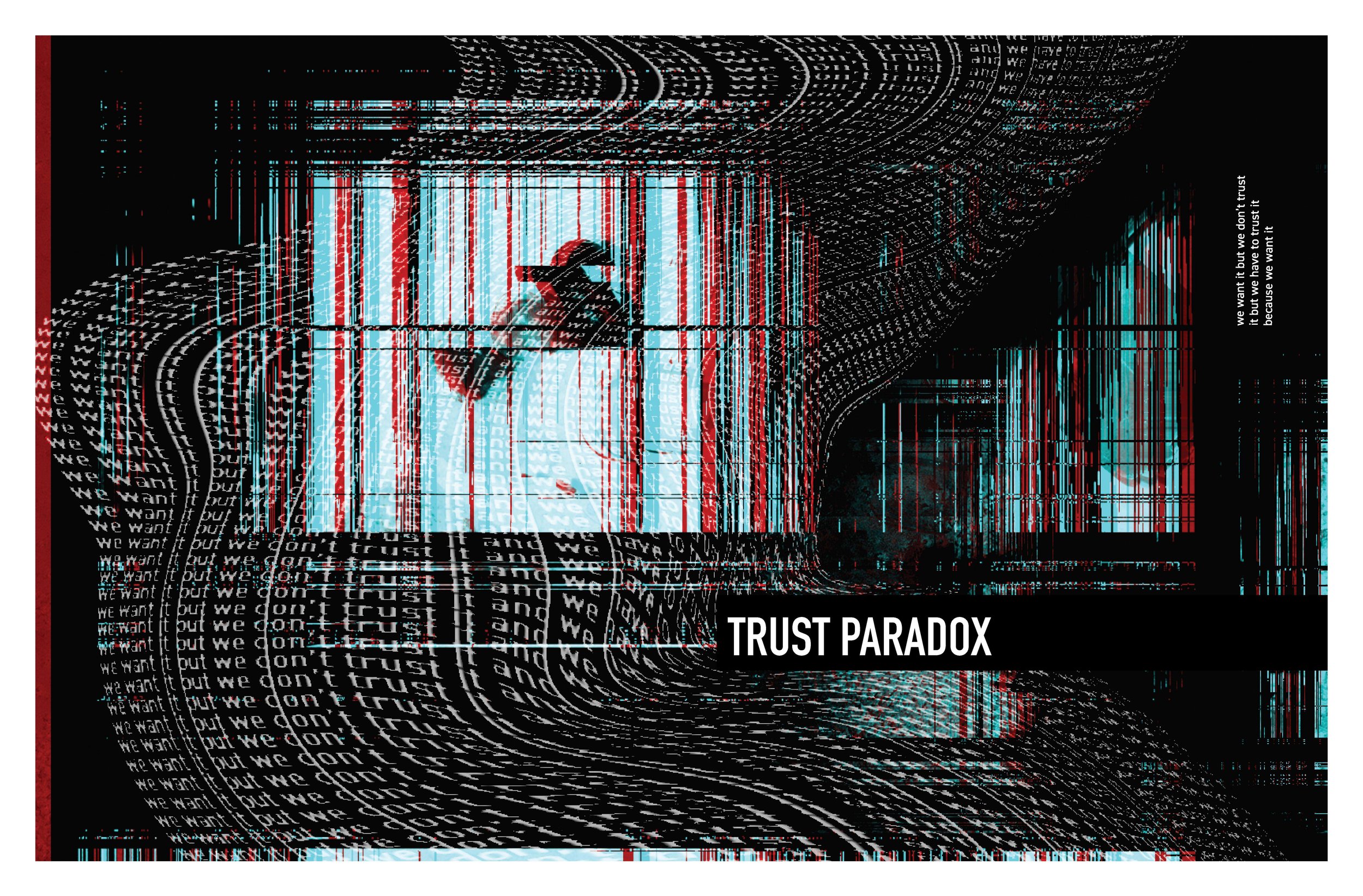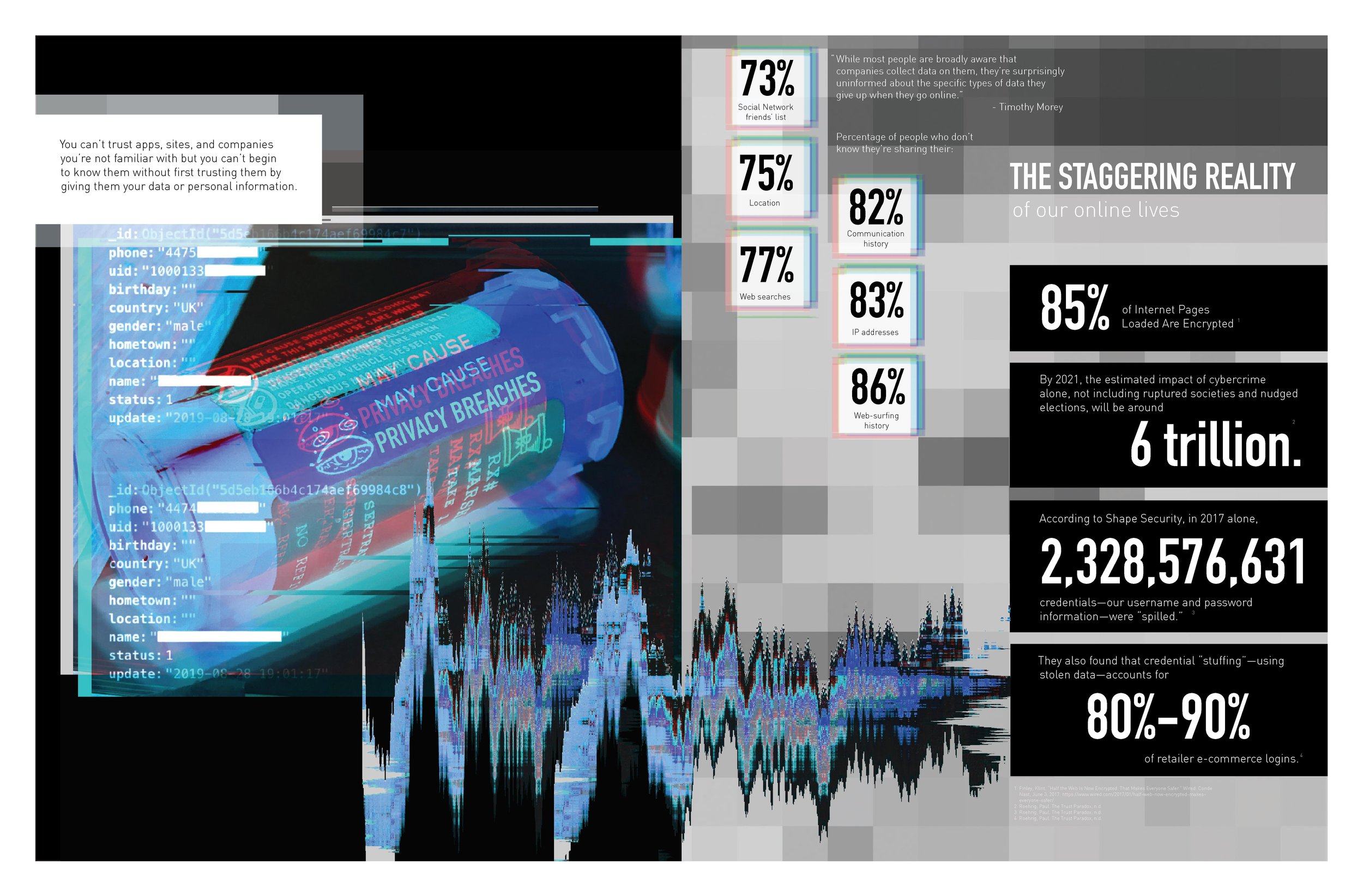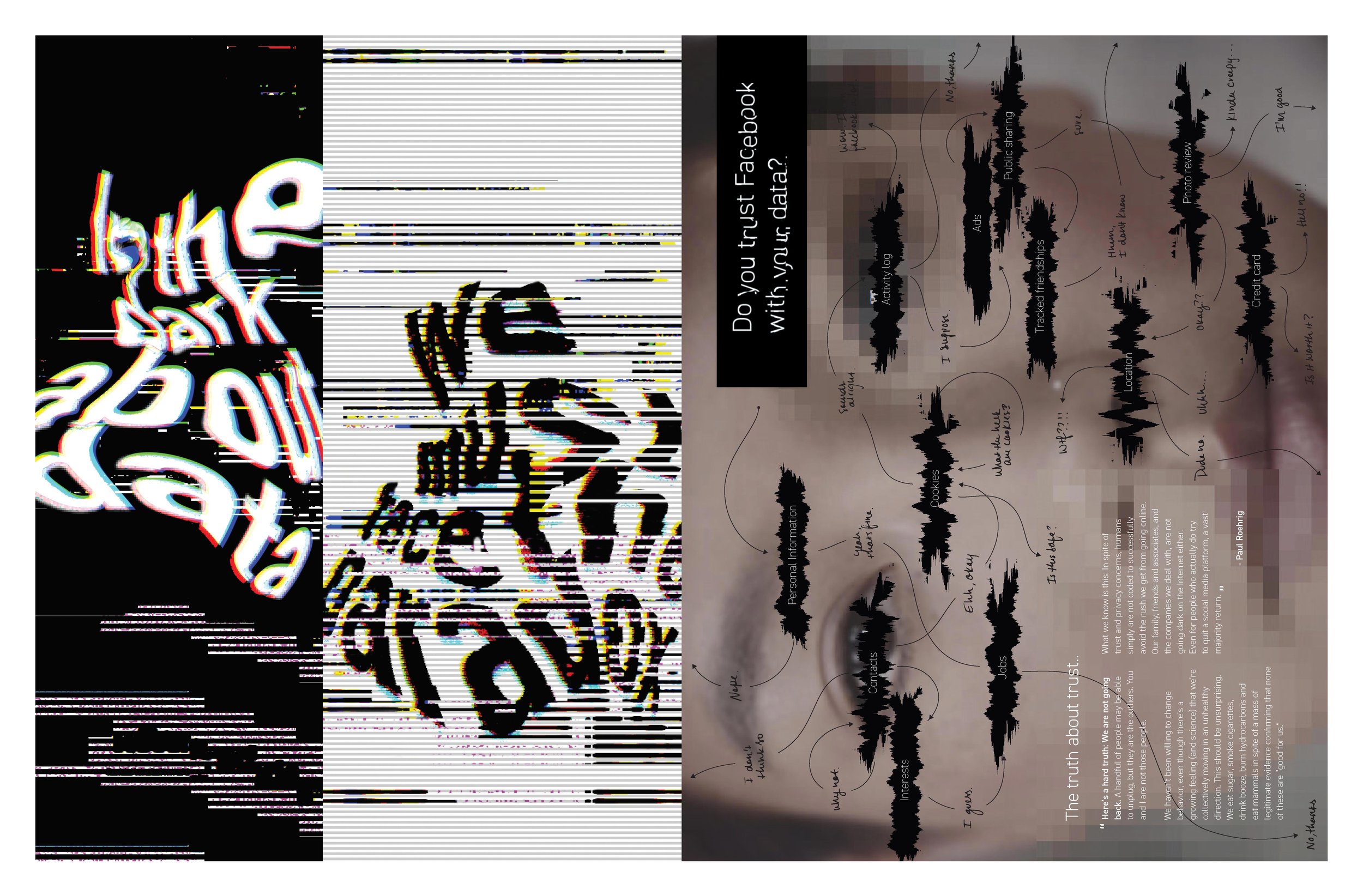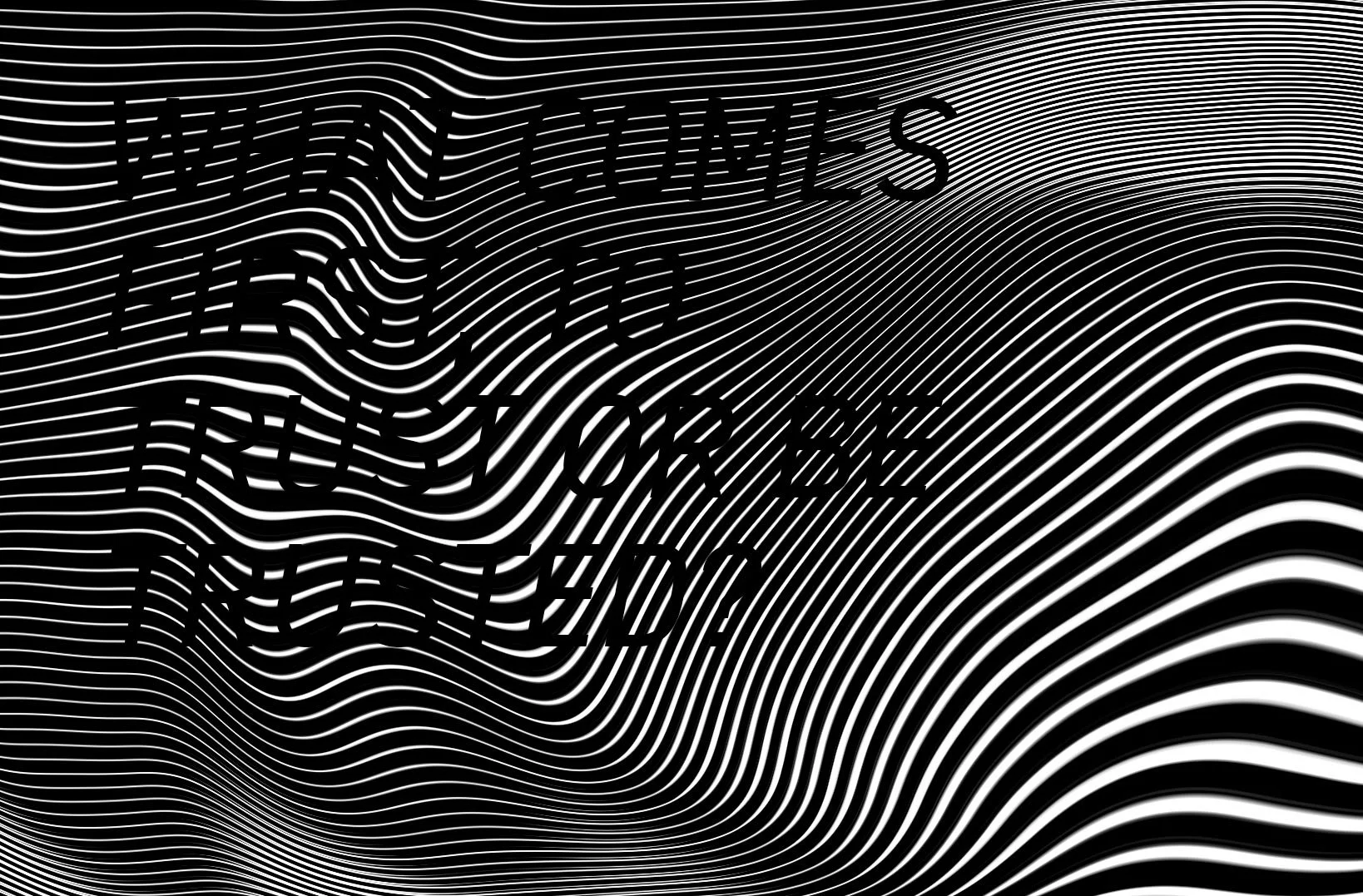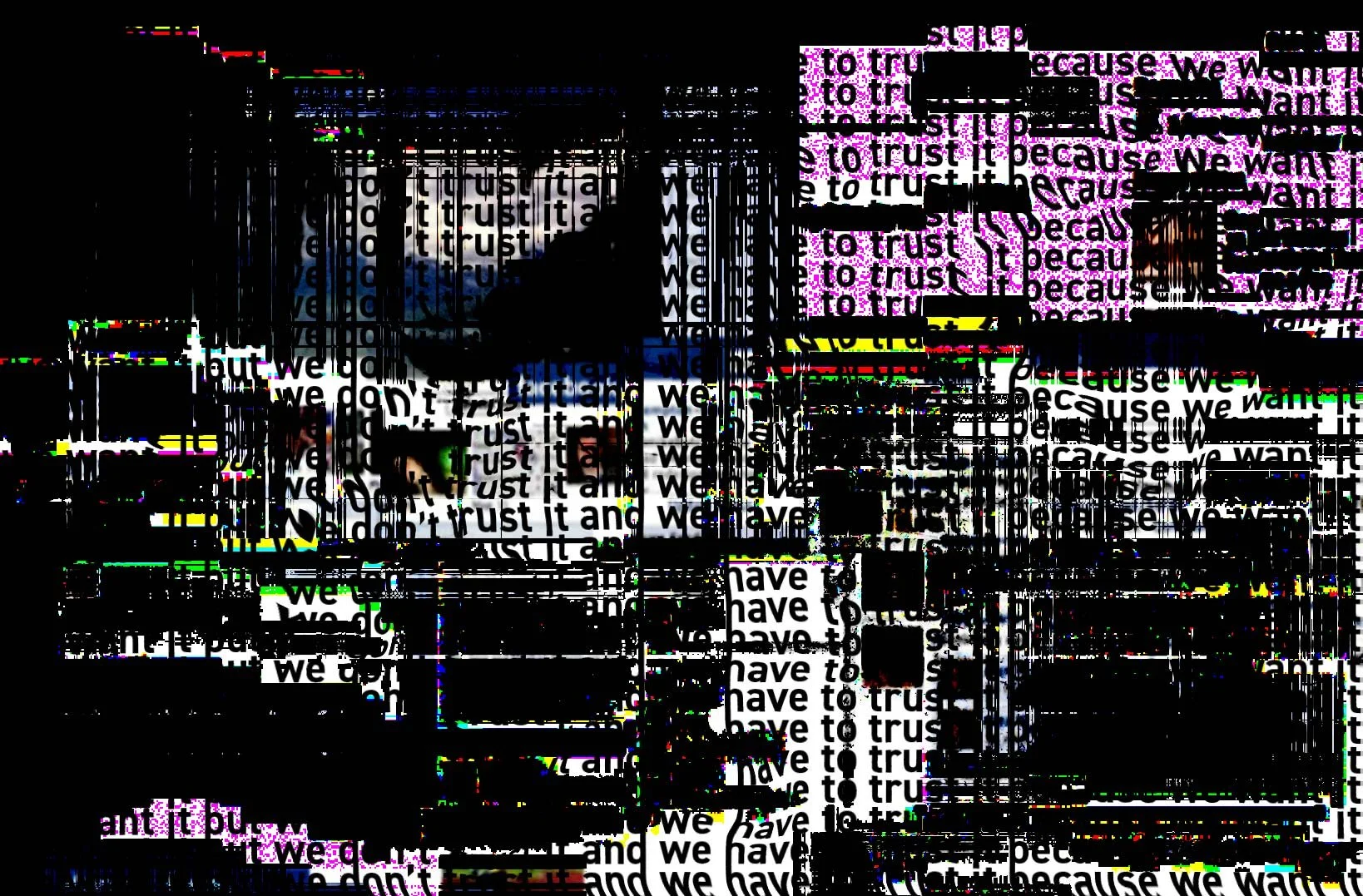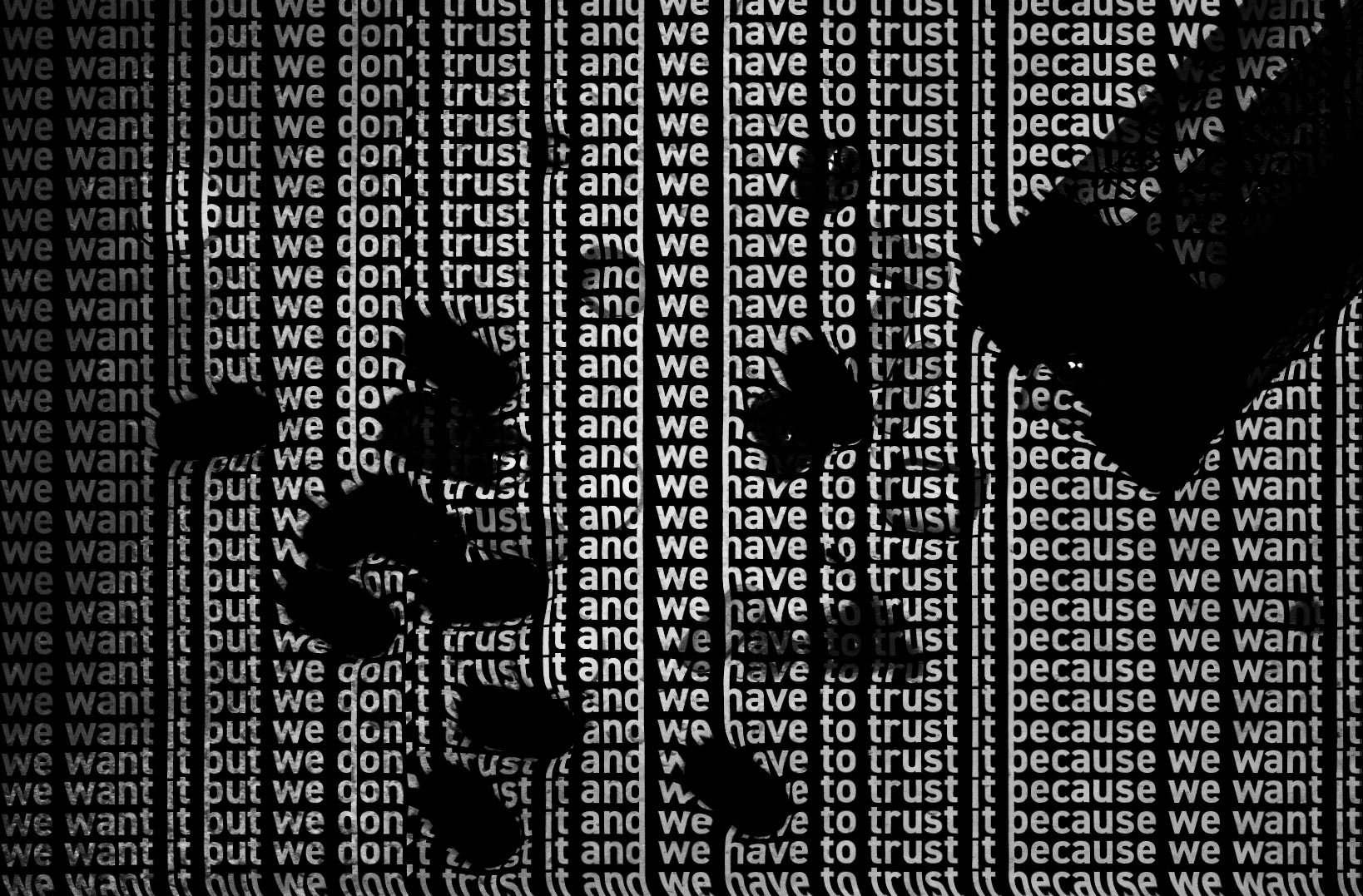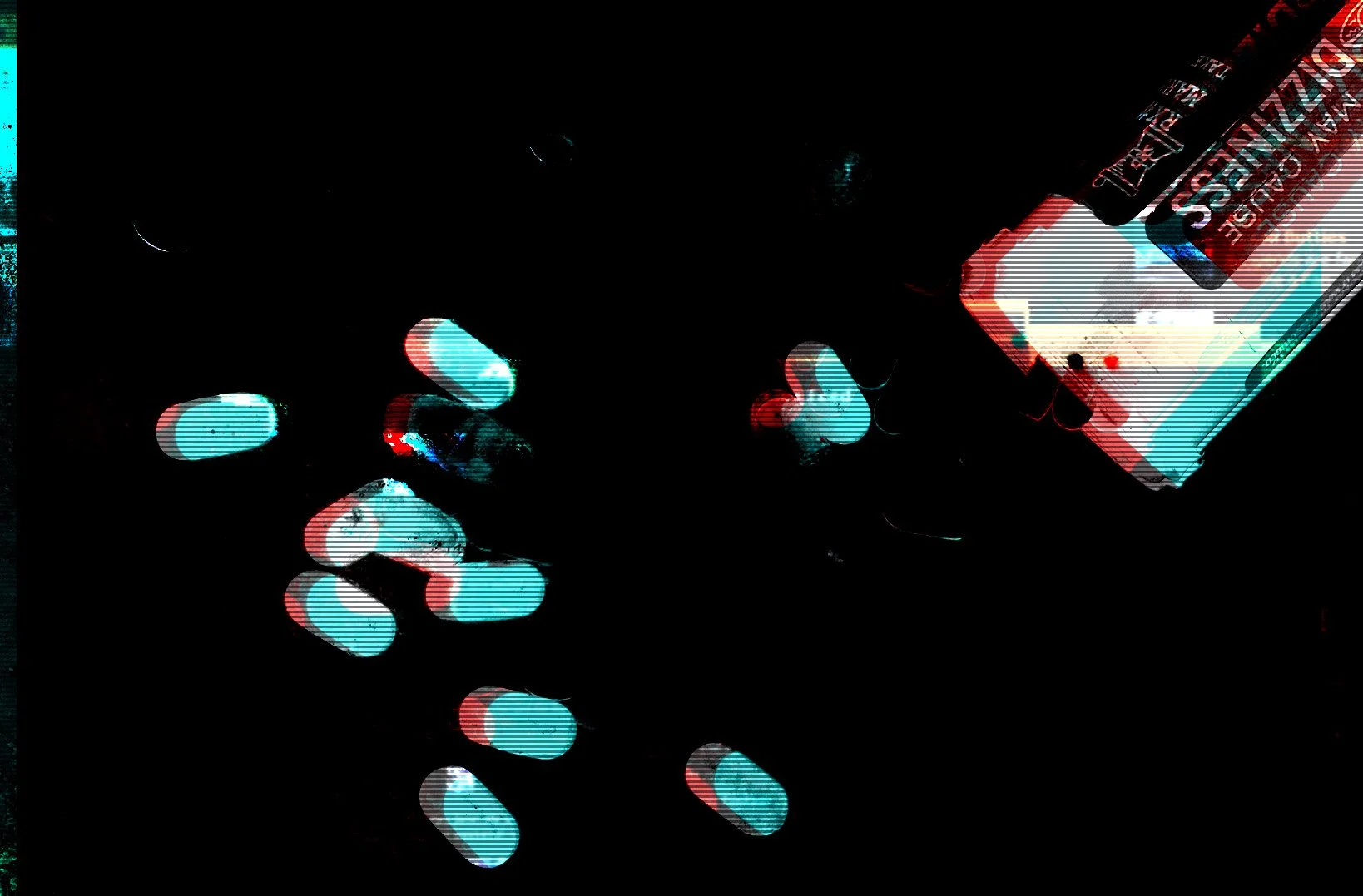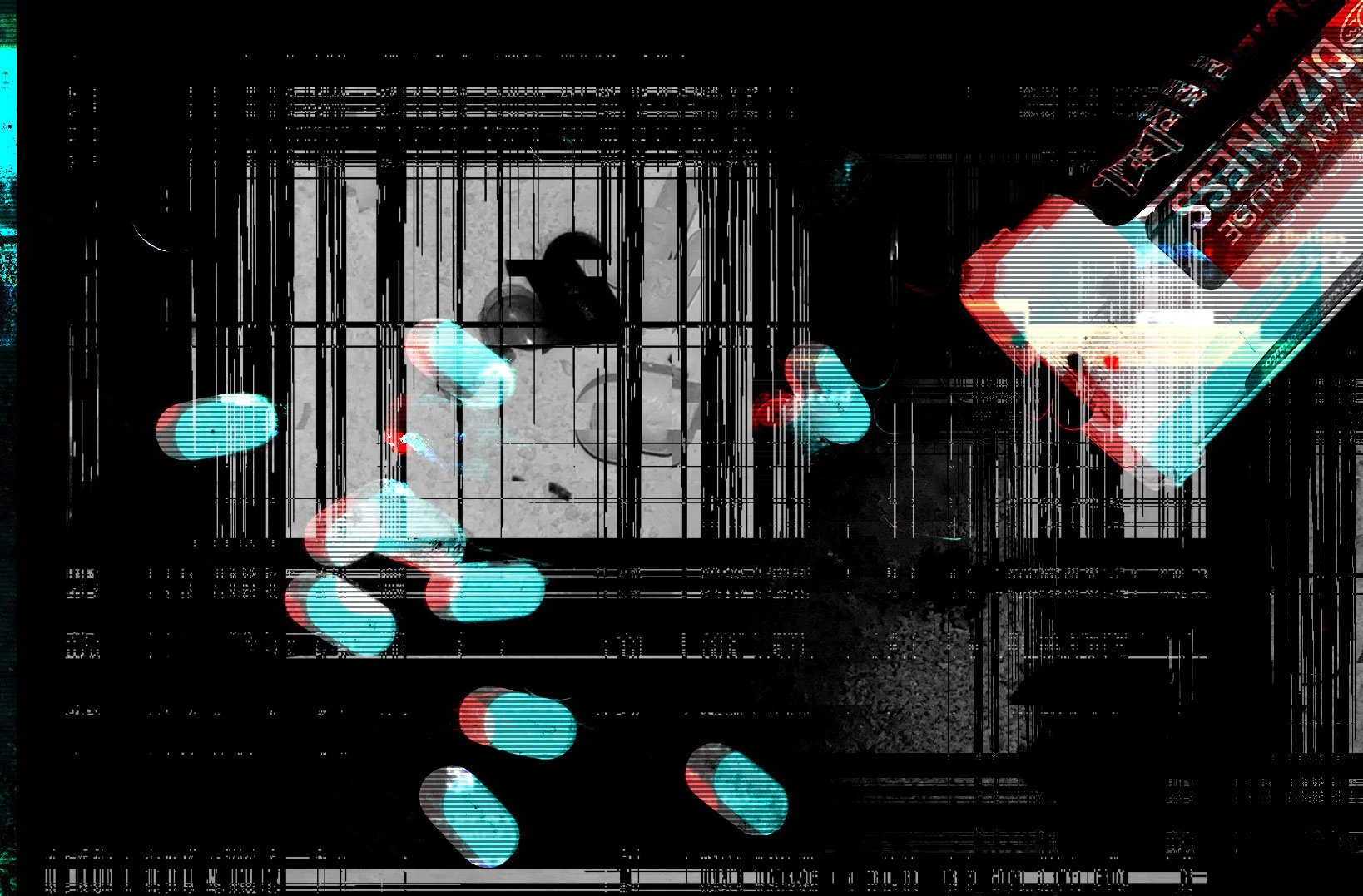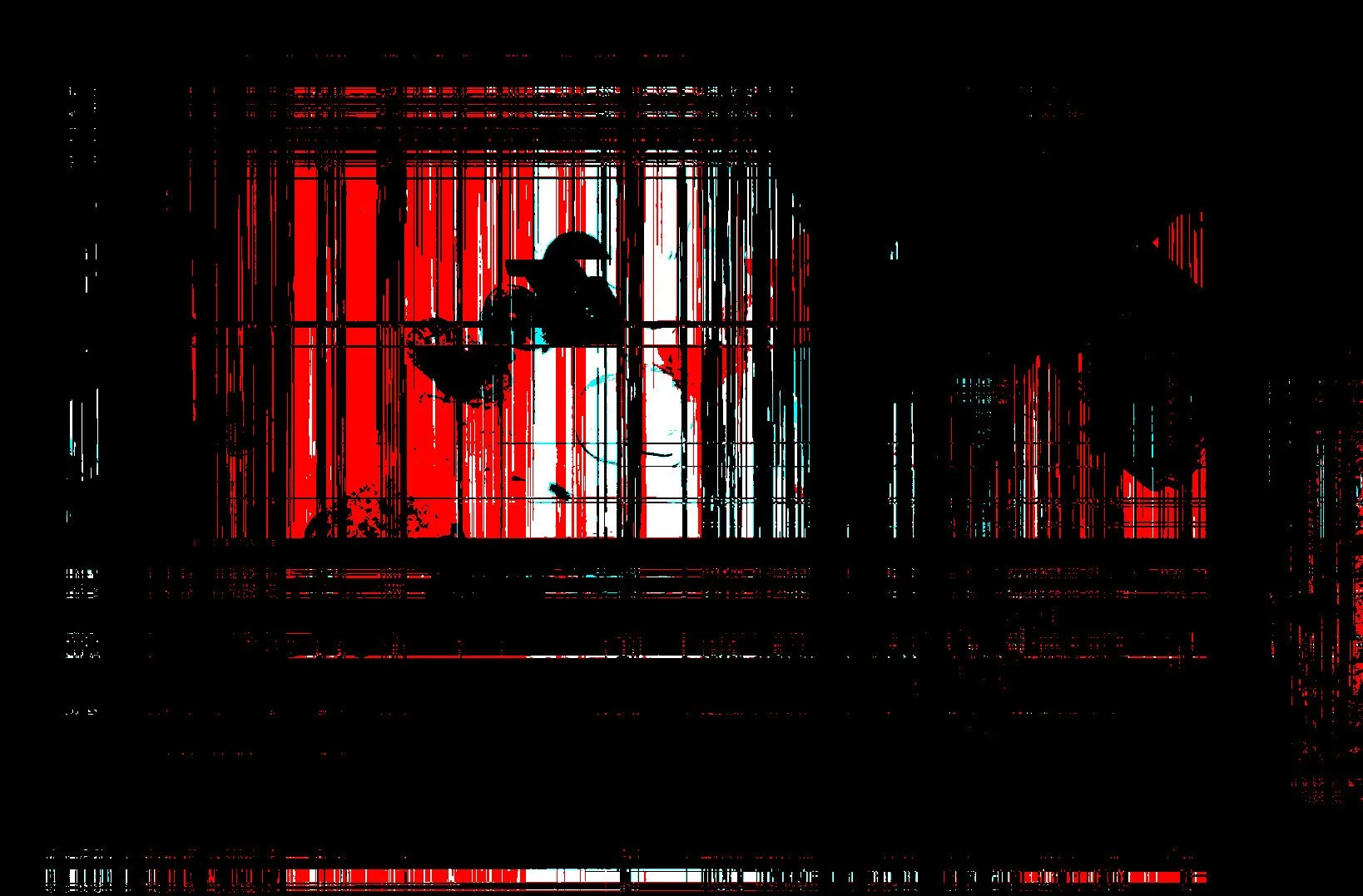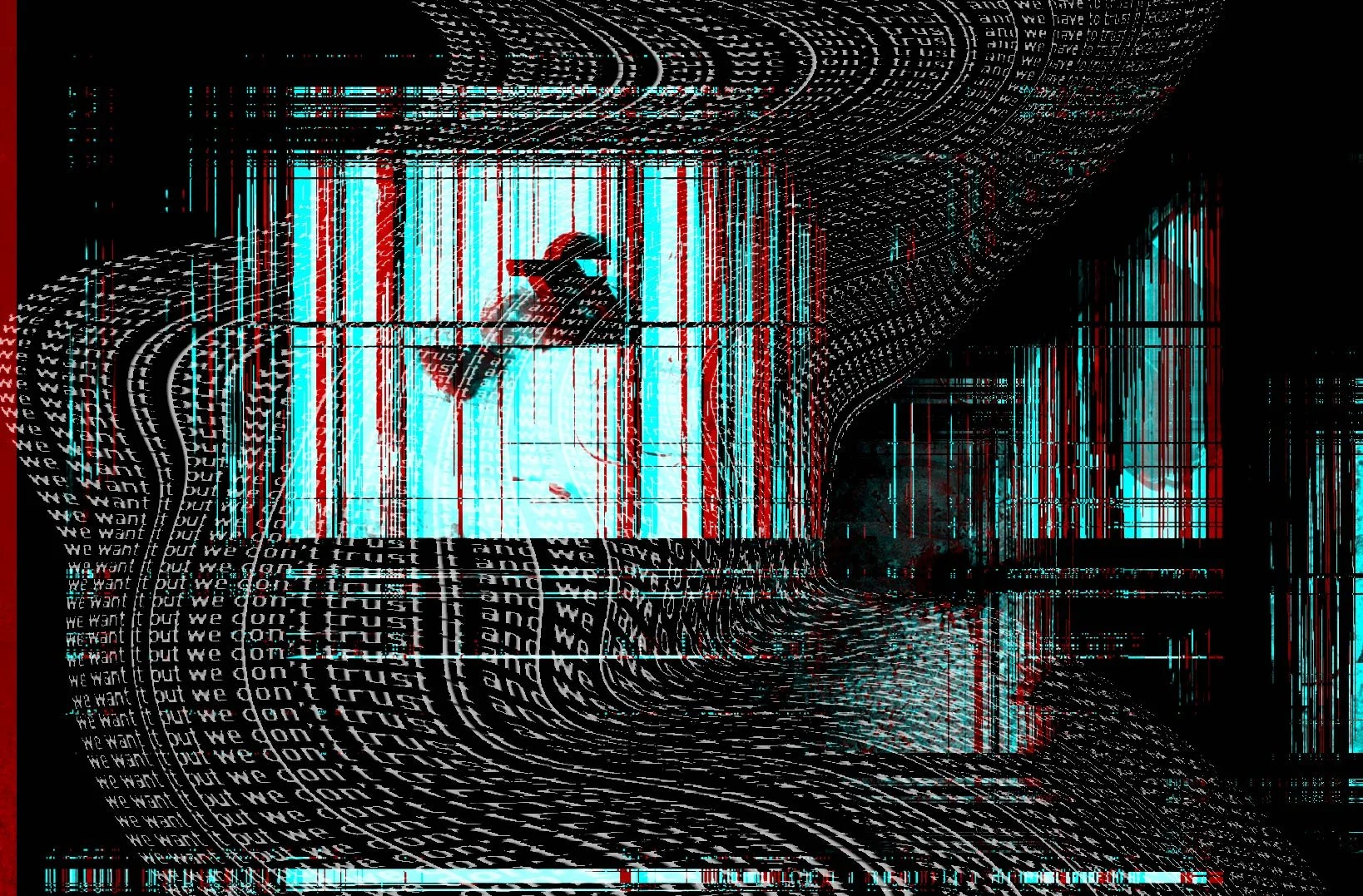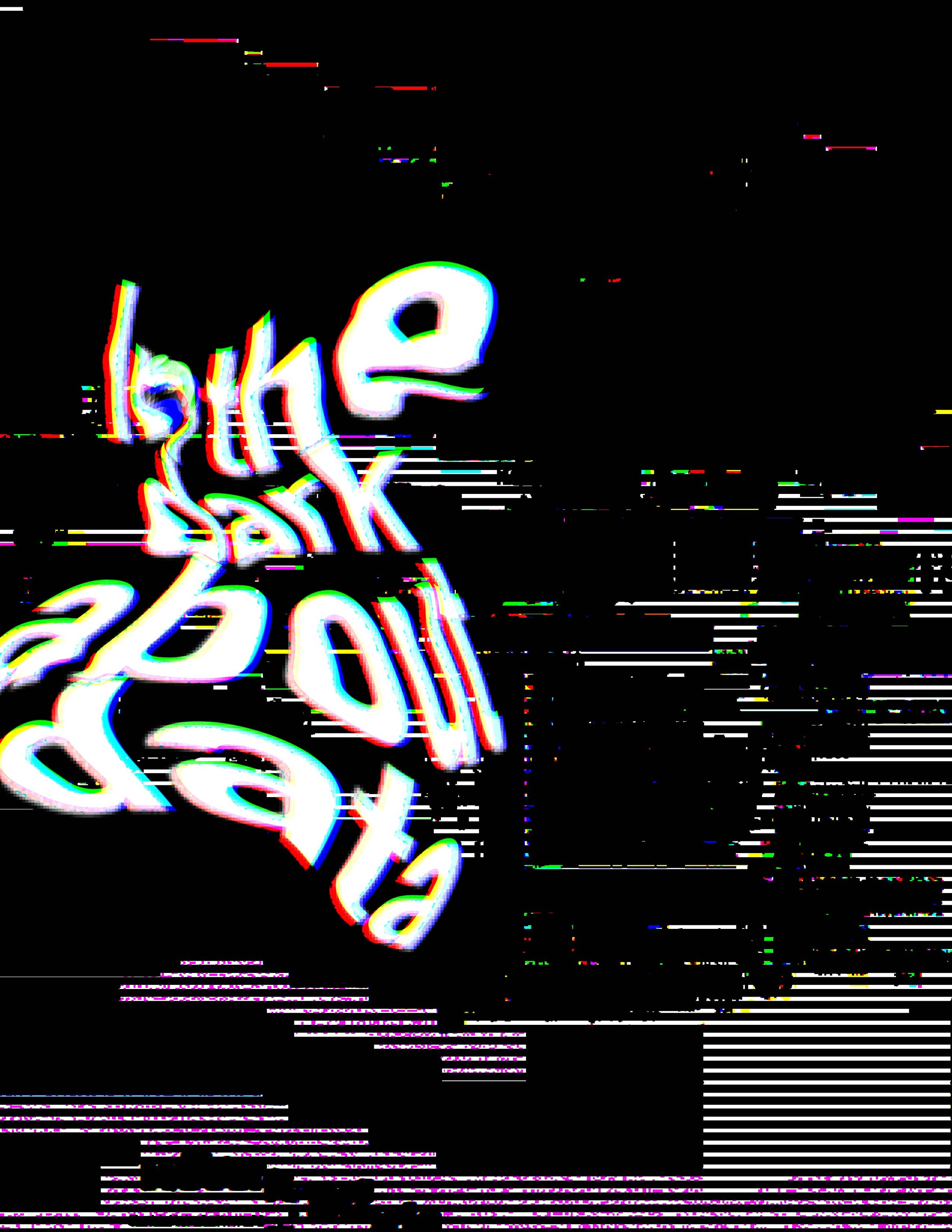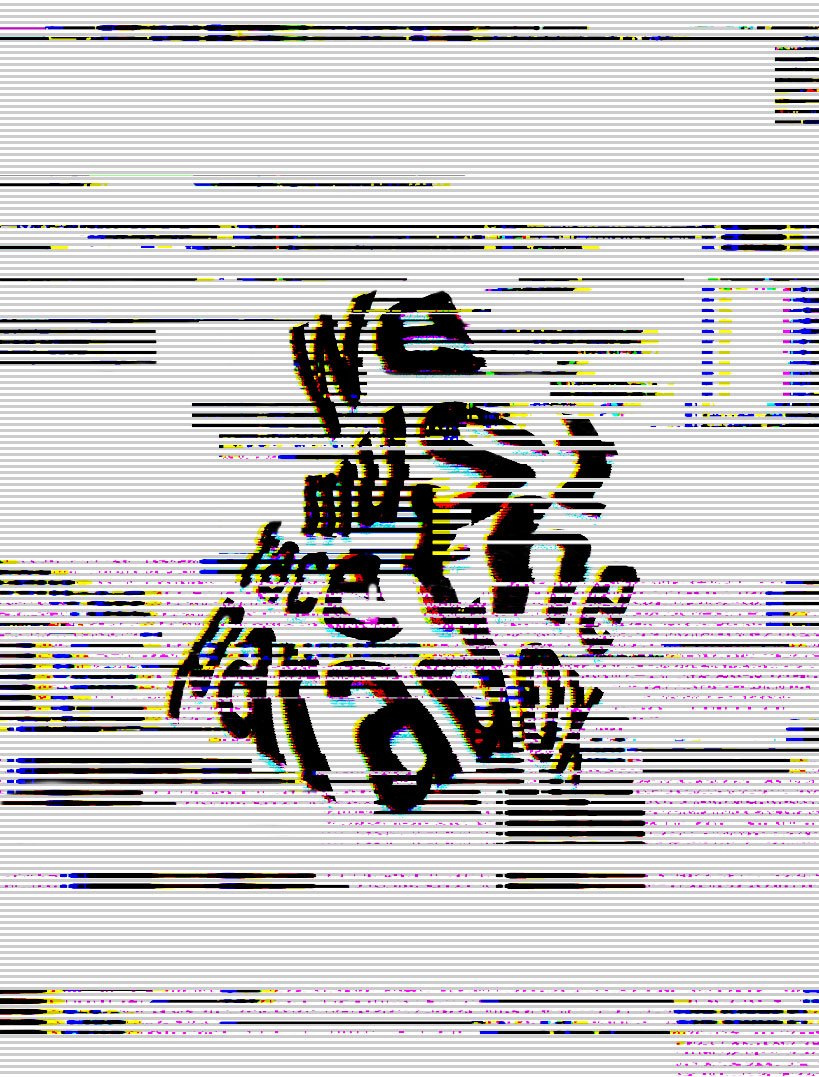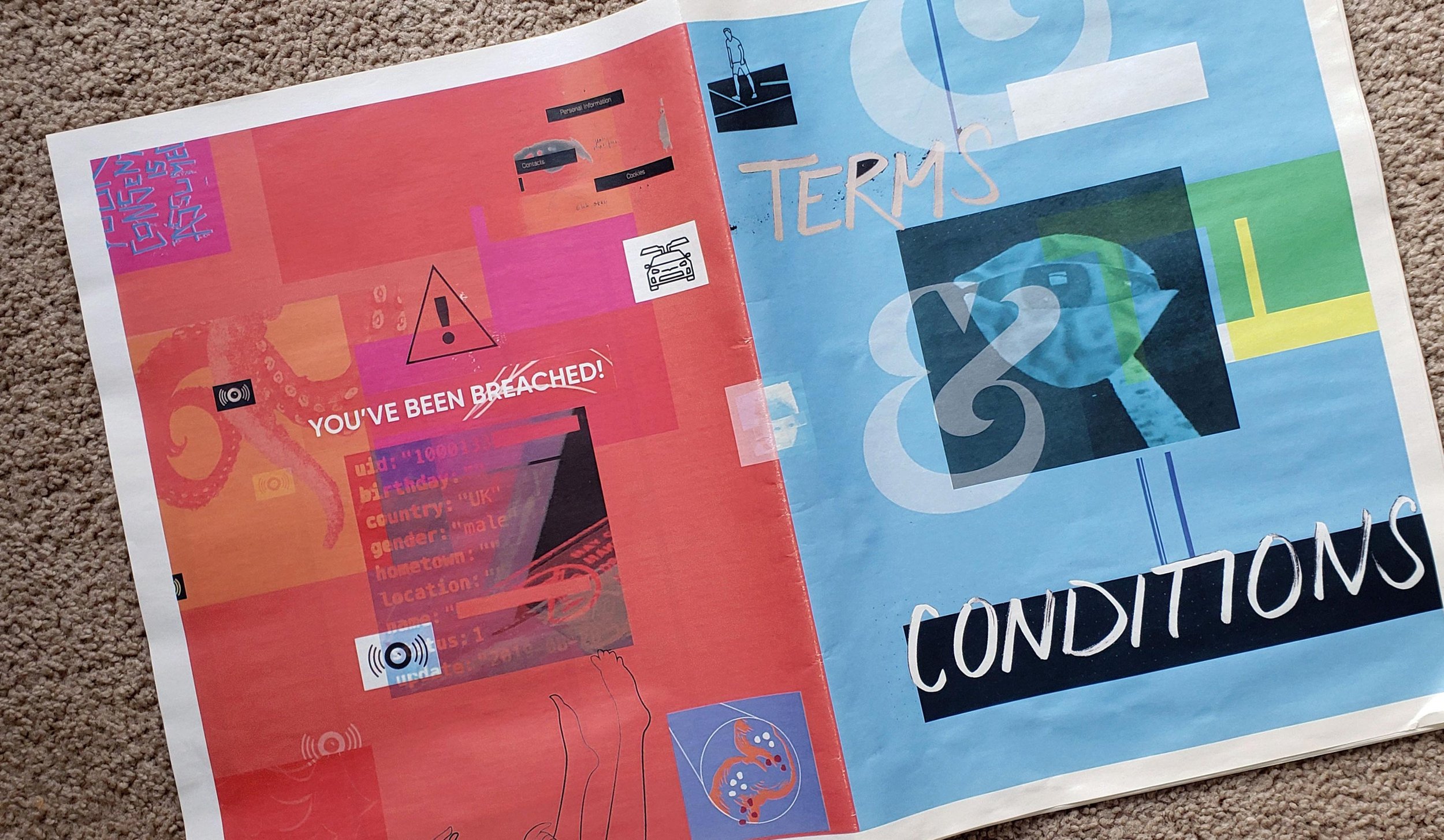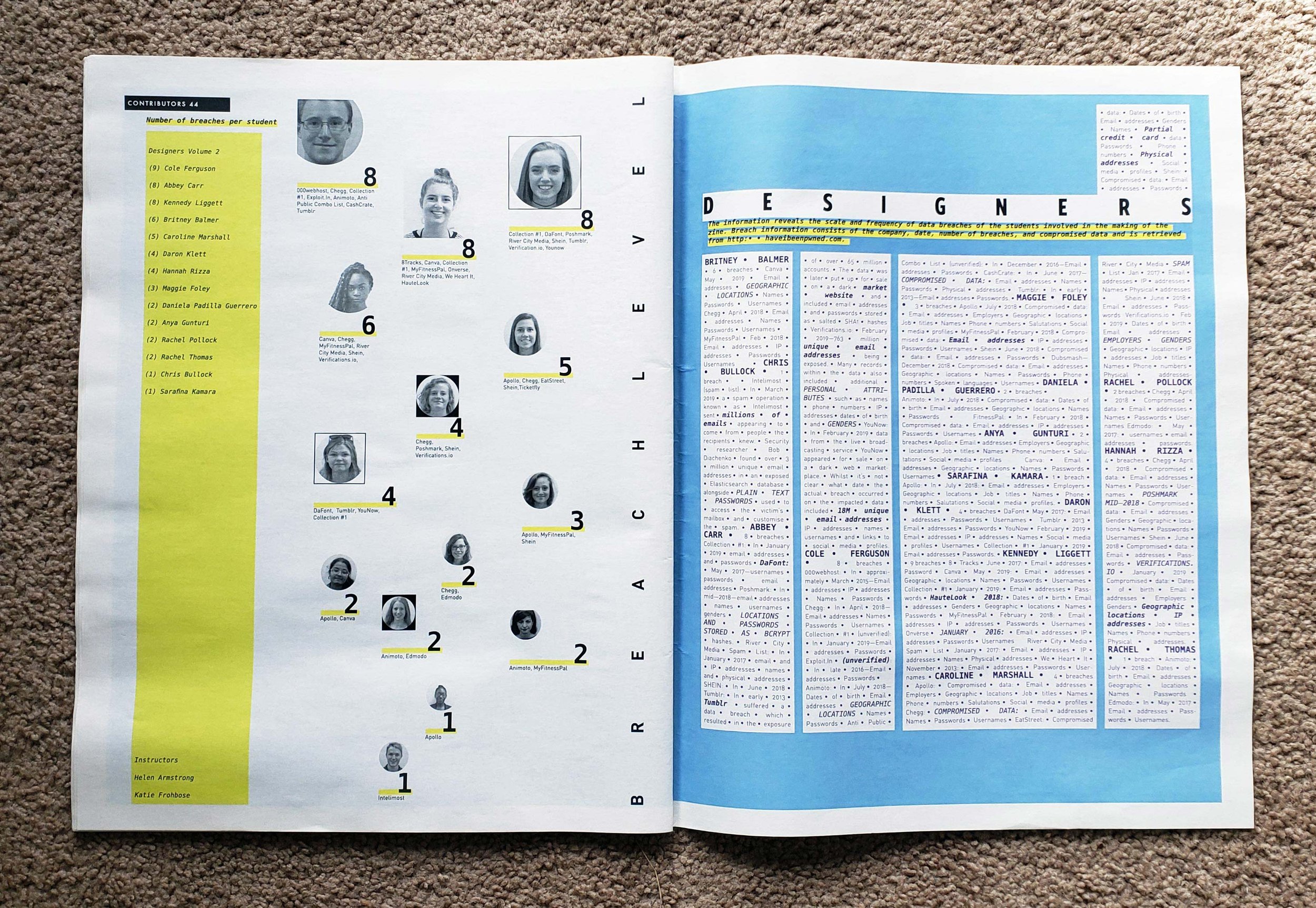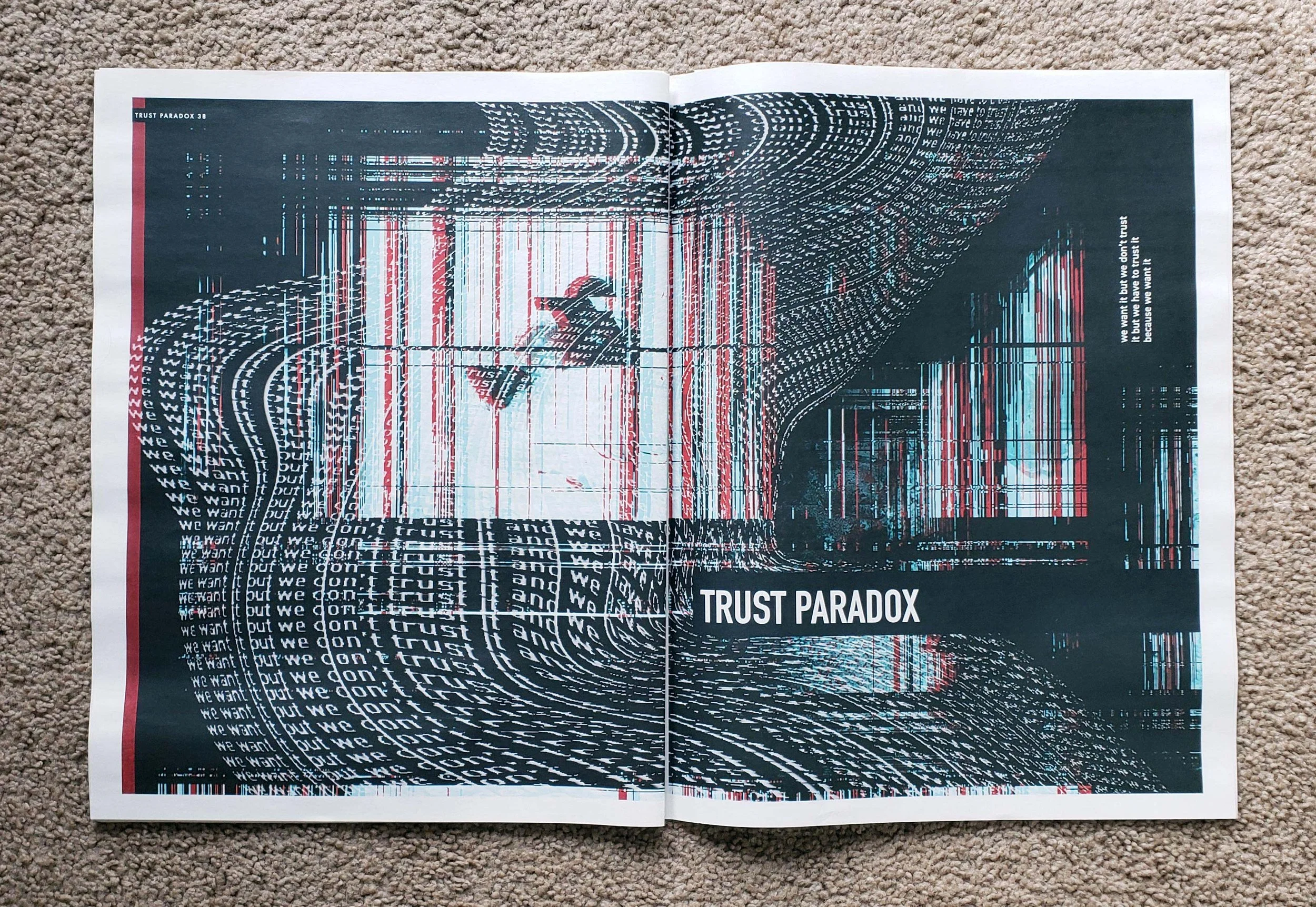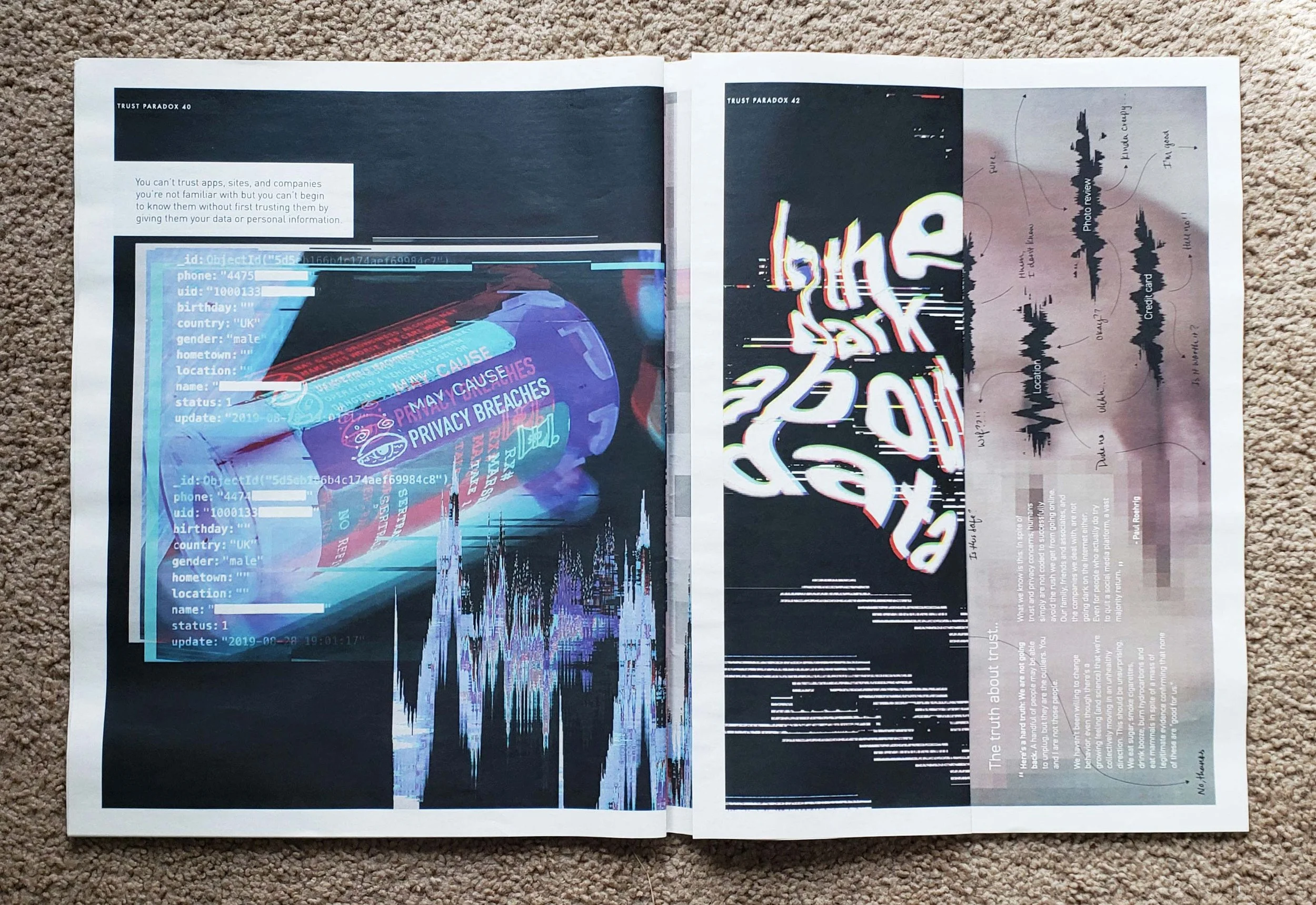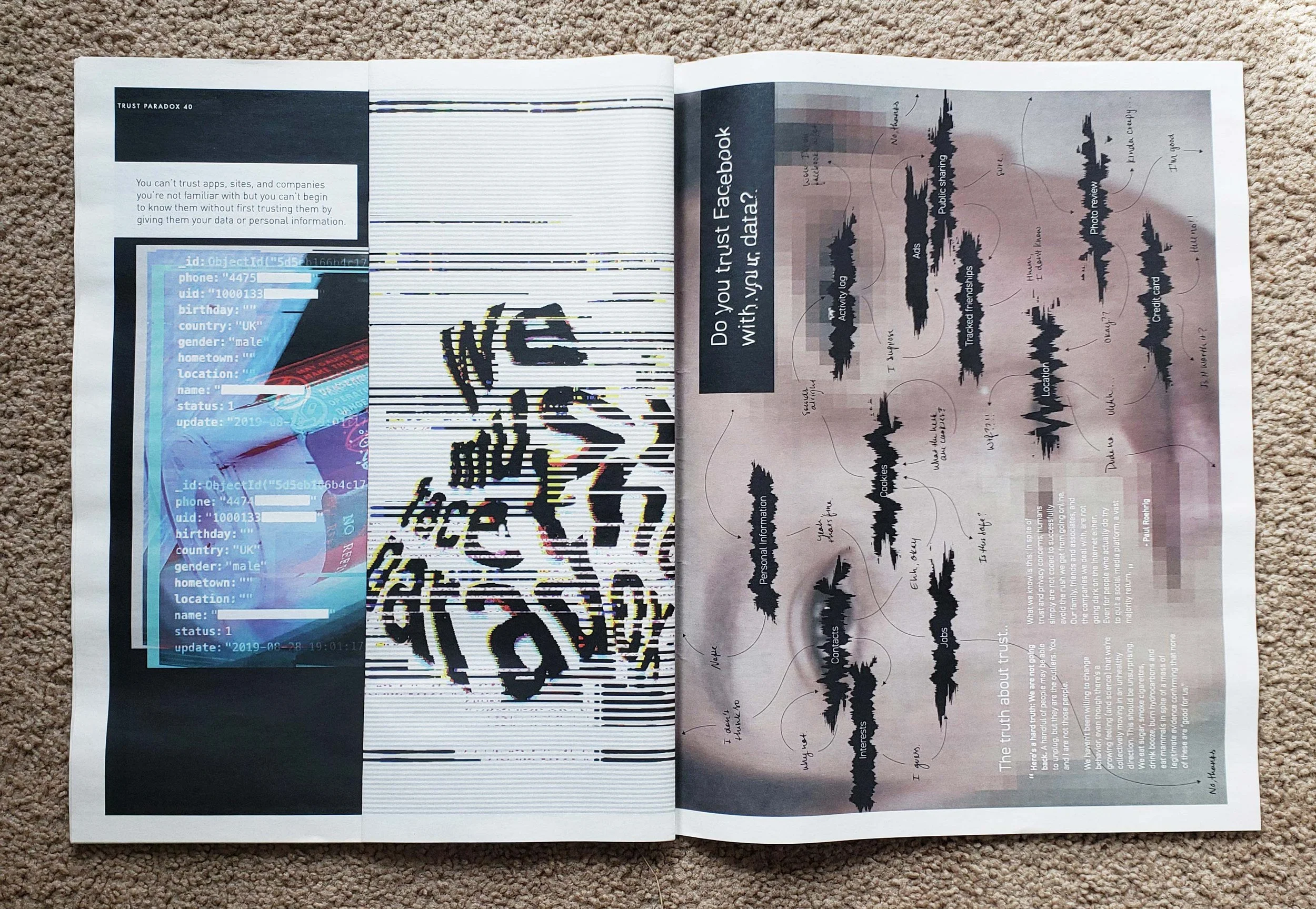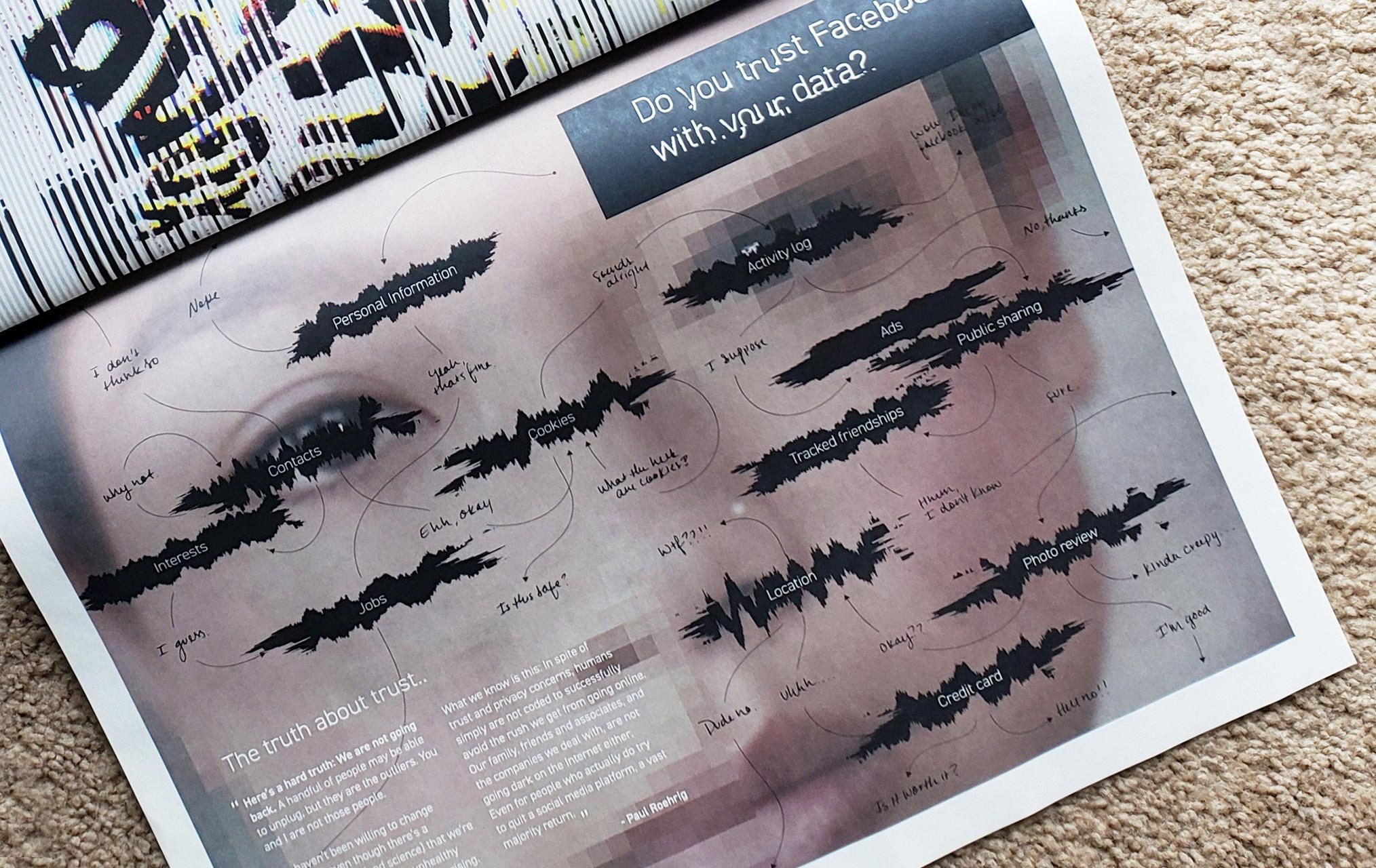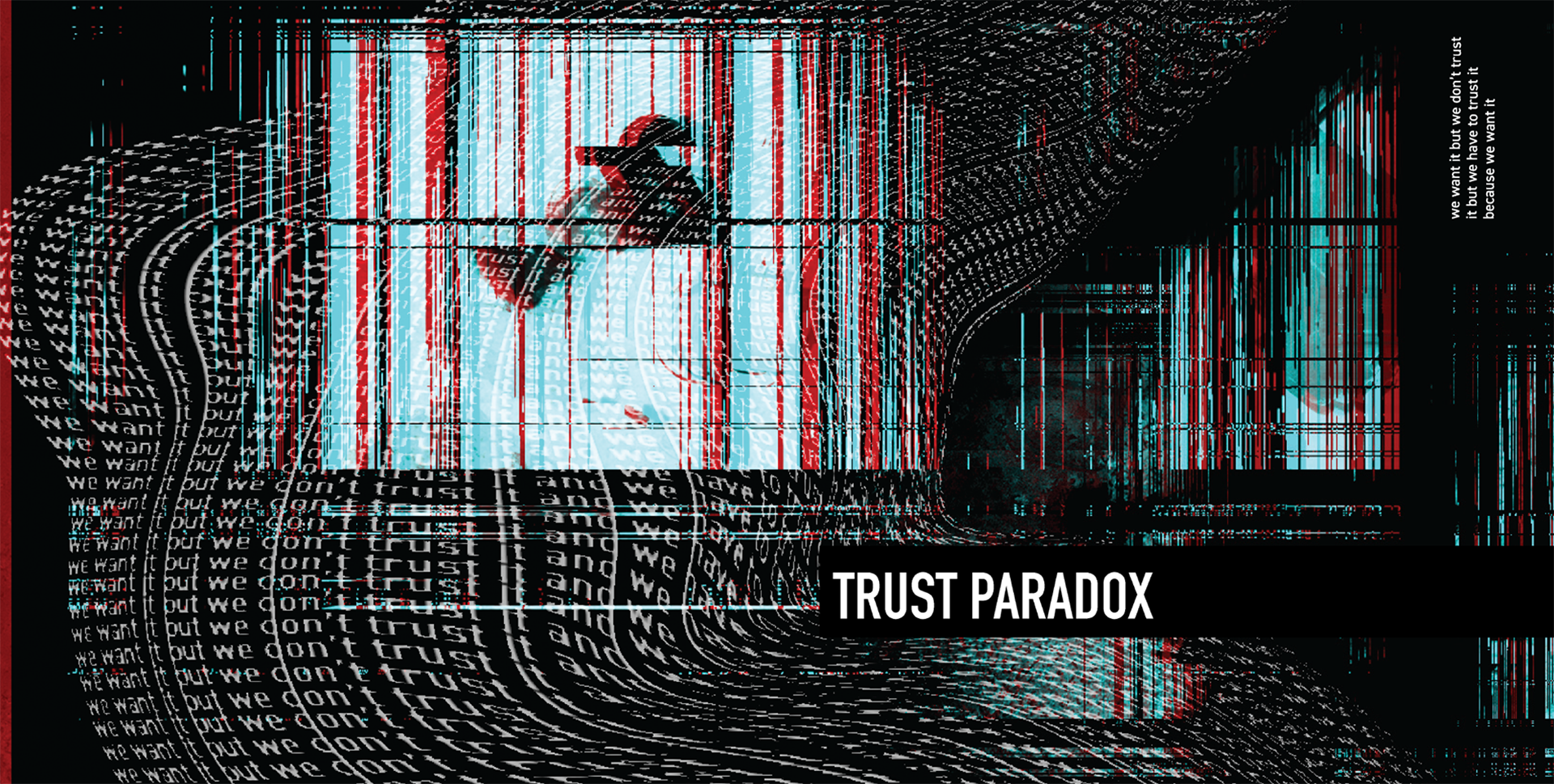
Trust Paradox
-
Trust is a social and personal construct and in terms of data collection many consumers are unaware or do not understand the extent the information they give. Data has recently surpassed oil as the world"s most valuable resource. With the growth of the importance of data, there is a disconnect between data collection companies and consumers. Our goal was to create a zine that would explain complicated topics, such as the trust paradox, to our peers in a visually interesting and dynamic way.
-
Before designing our zine, we performed research to help us better understand what the trust paradox is and how we could best communicate the idea visually. We gathered content to include in our spreads that provided evidence through statistics, and explained the extent of the trust users have with companies that use their data. The trust paradox is defined as users can't trust apps, sites, and companies they are not familiar with, but users can't begin to know them without first trusting them by giving them your data or personal information.
-
Based on the research and content we gathered, we were able to organize the information in a simple way that was easily digestible. Our visualizations focused on how the uncertainty of the trust paradox is uncomfortable and how people are in the dark about their data usage. The truth is people have been unwilling to change their behavior even though there is a growing feeling and evidence that we are moving in an unhealthy direction. Our goal is to demonstrate this uneasiness and uncertainty about data collection.
Zine Design, Data Research, Typography, Collaboration
Final Zine Spreads
Research
-
As the adoption of autonomous systems, artificial intelligence and data-driven innovation accelerates, an emerging challenge is building trust-one of trust and public acceptance. These technological advancements are beginning to solve some of our most intractable problems and shaping nearly all aspects of our daily life. Balancing the tradeoff between open sharing and guarded privacy is tricky. Data is a two-edged sword. Every digital system requires a digital identity; indeed, identifying a user as a single entity across all services produces the best results. To best serve us, we need a single, central identity. But centralization breeds risk, making us vulnerable. If there's anything we need to get right in digital government, it's identity, because it's the foundation of all other services. We have the right to control what others know about us-but others need to know us in order for us to exercise those rights in the first place.
https://www.bmt.org/insights/the-trust-paradox/
https://medium.com/fwd50/big-idea-the-trust-paradox-3ecdfacea93 -
There are literally dozens of mega-hacks, data breaches and-now-incidents of personal data misuse every year, and this is eroding our collective sense of privacy and trust in technology, the organizations with which we interact and even each other. The numbers describing our machine-age lives are astronomic and math-phobia-inducing. Facebook has 1.28 billion active users. Twitter hosts over 500 million tweets per day. YouTube's popular T-Series channel, featuring Indian music, has more subscribers than the entire population of Germany. All that money and information in transit makes attacking privacy and trust a profitable business. According to Shape Security, in 2017 alone, 2,328,576,631 credentials-our username and password information-were "spilled." If our personal information is used by a crook to buy jeans, that's bad, but it doesn't cause a seismic rift in our society. The real downstream impact of a lack of confidence in technology is that we're now facing a period of reckoning where we must wrestle with some fundamental questions that demand responses: What is true? Who can we trust? Who owns the digital me? Is privacy a right or a commodity? Even as consumers and politicians express outrage, our own behavior doesn't match our rhetoric. There's a real incongruity between what we say about security and trust and what we actually do about it.
https://www.cognizant.com/whitepapers/the-trust-paradox-codex4455.pdf
-
Here's a hard truth: We are not going back. A handful of people may be able to unplug, but they are the outliers. You and I are not those people. We haven't been willing to change behavior even though there's a growing feeling (and science) that we're collectively moving in an unhealthy direction. This should be unsurprising. We eat sugar, smoke cigarettes, drink booze, burn hydrocarbons and eat mammals in spite of mass legitimate evidence confirming that none of these are "good for us." What we know is this: In spite of trust and privacy concerns, humans simply are not coded to successfully avoid the rush we get from going online. Our family, friends and associates, and the companies we deal with, are not going dark on the Internet either. Even for people who try to quit a social media platform, a vast majority return. We're rightfully concerned about trust, transparency and privacy, but we're not going to join a hunter-gatherer tribe that's sworn off Fortnight, Google and every IP-addressable thing. Our new machine age is simply too enticing profitable, interesting, addictive and fun. For all of us, this means: Technology is more central to every interaction, trust in all technology is eroding, our responses to this, so far, have been pretty anemic.
https://www.cognizant.com/whitepapers/the-trust-paradox-codex4455.pdf
-
What we decide about trust and privacy over the next couple of years will shape our economy and society for decades to come. It is clear that modern democratic societies and forward-thinking companies are taking steps to apply new guardrails to data monetization, privacy and transparency to salvage trust in our increasingly digital interactions. It's a lot to wrestle with, but there are a few certainties we can build on. We must face the paradox. Traditional Ideas of trust, privacy, and transparency simply don't hold up to the new machine promise. Hoping our conventional notions of privacy will suffice is naive at best and, at worst, likely to be scarier and more dangerous for us all. We need better rules-via legislation, regulation and industry oversight-that encode the values-what we really want-of our civil societies. We get to decide. Things might feel a bit dire, but our current debates show democracy is working. The end of old-school privacy is a hard thing to face, but we get to determine whether privacy is a right or a product that we have to pay for.
https://www.cognizant.com/whitepapers/the-trust-paradox-codex4455.pdf
Process Images
After preliminary research, we boiled down our topic to the information essential to understanding the trust paradox. To explain our concept, we used the metaphor of a drug addiction. Using social media platforms such as Facebook and Instagram is a security risk, however, people still use it because they enjoy socializing despite their knowledge of those companies taking their data. Taking risks with form and imagery, we created dynamic compositions that explain our concept in an interesting way.
Collective Data Zine - Terms & Conditions
My senior design studio divided into two-person teams and each team would communicate a data concept on three spreads of a collective zine. Our target users were other design students who want to understand the basics of data.
